Local Motorsports Legend: Barry's always been keen for a spin
Sue Fea © the Southland App
03 October 2025, 5:32 AM
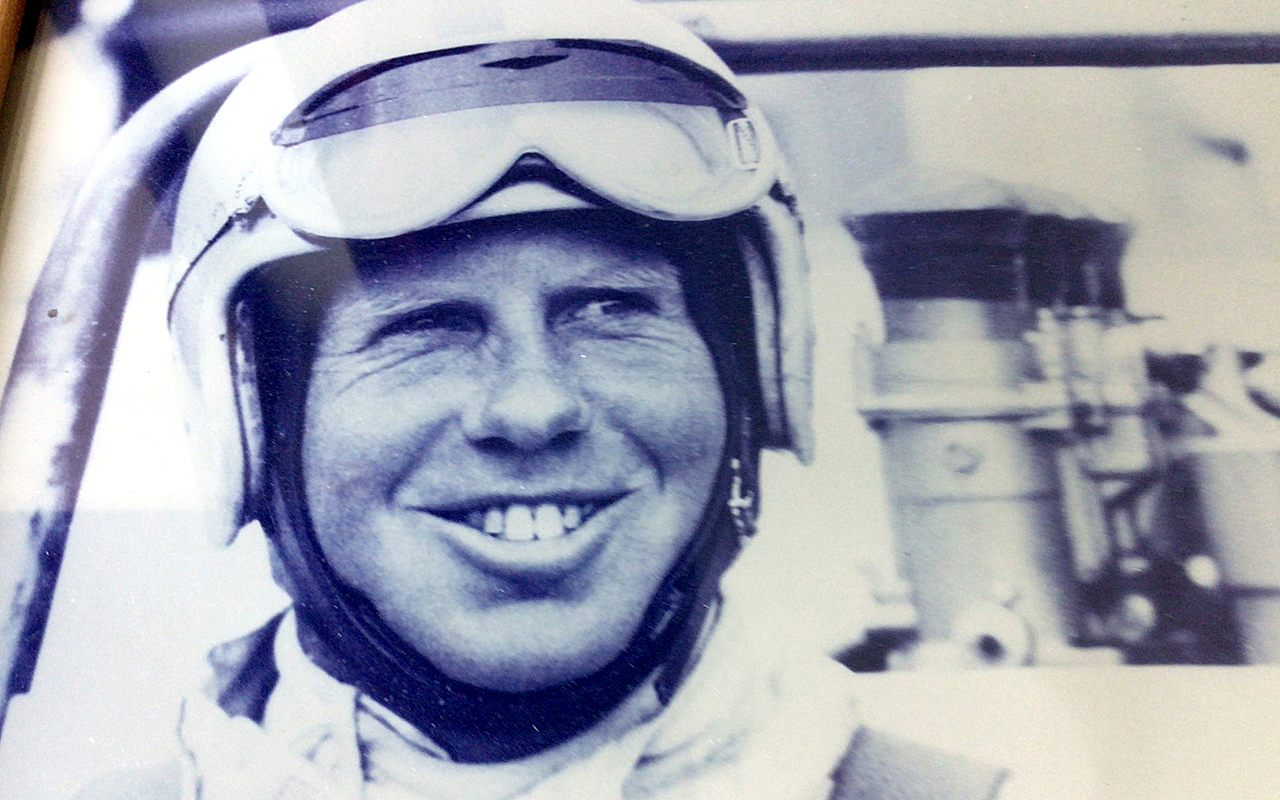 Southland motorsports pioneer & George Begg's original racing car driver, Barry Keen in his heyday. Photo: Supplied
Southland motorsports pioneer & George Begg's original racing car driver, Barry Keen in his heyday. Photo: SuppliedTucked away in a quiet Invercargill suburb is one of Southland’s motorsport legends – a humble retired farmer who could’ve made his mark on international motor racing for New Zealand.
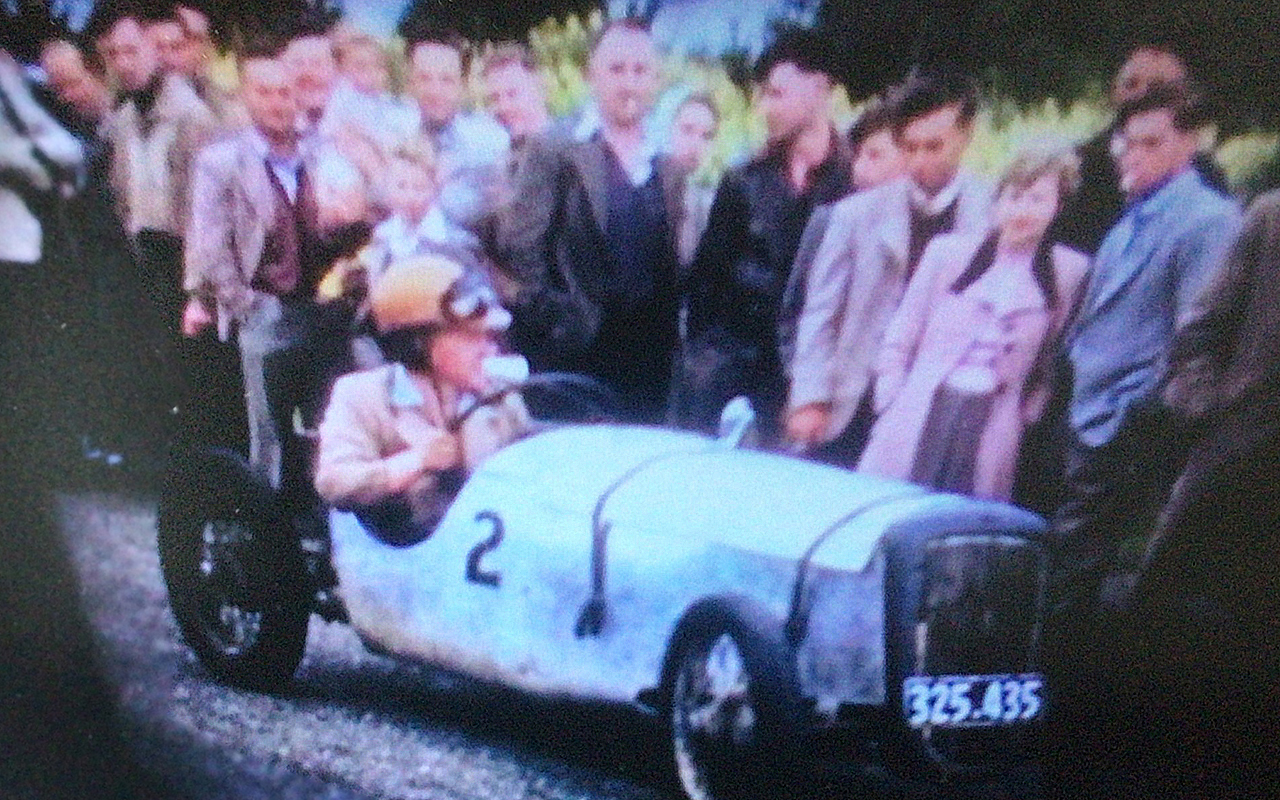
The first car Barry Keen ever owned – his Ford 8 Special - 1956. Photo: Supplied
Now 86, Barry Keen was a very talented driver in his 20s, racing the legendary George Begg’s homebuilt cars all over New Zealand with great success.
Introduced to motor racing one day by a contractor working on his parents’ Waicola farm, Barry took to the sport like a duck to water skinning possums and rabbits to buy his first car, a Ford 8 Special with a Austin chassis, at 16.
“I wasn’t interested in car racing, but I went to a Hill Climb in Gore with this guy, who had a Mark 1 Ford Zephyr convertible,” Barry says.
“I saw these cars screaming up the hill and I got hooked.”
One in particular caught his fancy and a week later he’d earned enough money to buy it.
"There was no Teretonga then, just grass tracks in paddocks or beach racing at Oreti Beach, sometimes the odd Hill Climb.”
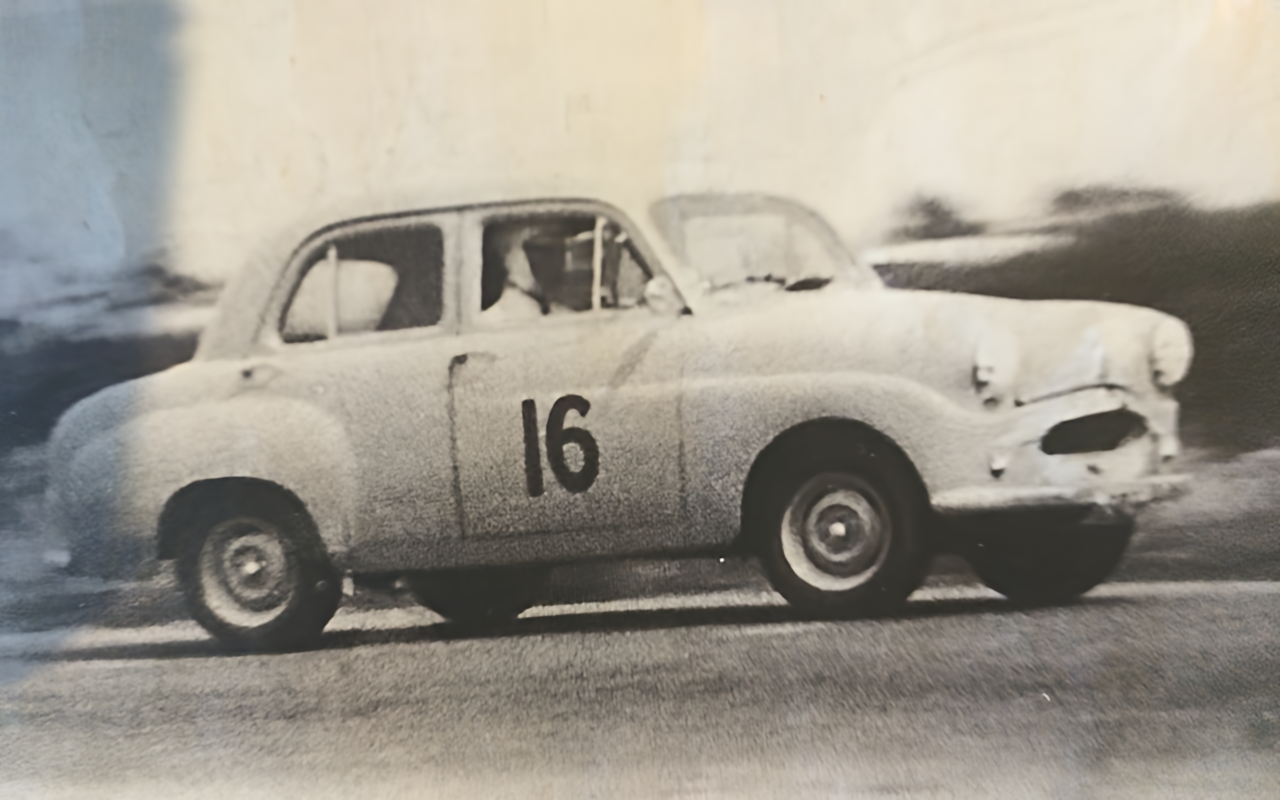
Barry Keen racing his Standard 8 at Ryal Bush road race in 1957, before Teretonga opened. Photo: Supplied
“I’d take a burn down our No Exit gravel road past the Pickett’s place to the state forest bush where I’d roar around the paddocks,” he recalls.
A makeshift racetrack at Ryal Bush in the late 50s saw the road between Invercargill and Winton temporarily closed, drawing in crowds of up to 18,000 spectators to watch.
“They’d be lining the surrounding Ryal Bush paddocks and over the boundary fences, farmers allowing masses of cars to park in their paddocks.”
Southland’s tiny Ryal Bush became renowned as a hot racing spot and was a regular on the national motor racing circuit, up there with Pukekohe (originally Ardmore) and Wigram.
Barry was right there amongst it as a youngster, racing against some renowned overseas drivers and Auckland Sports Car stars at Ryal Bush from 1957 in his Standard 8.
Rarely did he get a chance to test drive, straight onto the track.
Teretonga was open by November that year when Barry won the Handicap Saloon Car Race.
“Teretonga also attracted 18,000 to 19,000 in those early days,” Barry says.
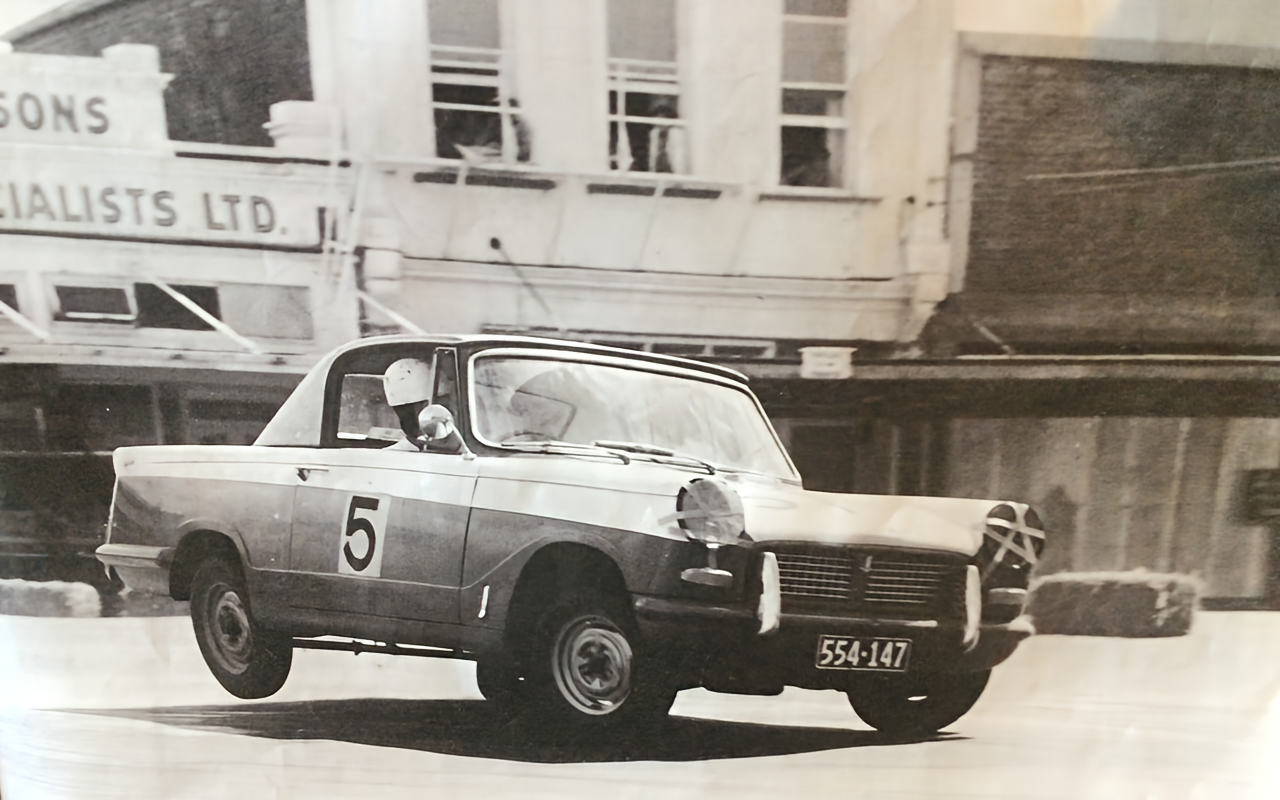
Barry Keen racing a Triumph Herald at Waimate in 1960. Photo: Supplied
He’s been heavily involved in the Southland Sports Car Club since then, joining up at 17 and always on hand for working bees, track preparation and clean-ups after meets.
Racing became his life in between working on the family farm, Barry spending weekends racing his Triumph Herald Coupe not only at Teretonga and Wigram but Dunedin and Waimate too.
Born in 1938, Barry grew up in post war Southland between Wairio and Scott’s Gap, near Otautau, the youngest of four kids by 16 years.
“I’d get sent to my retired bachelor uncle’s place in Riverton for holidays whitebaiting and fishing near Bluecliffs.
“I had a great upbringing.”
Surgery on his feet at eight, had left him out of action for six months and wearing callipers for two years but once that healed he made up for lost time.
Barry biked or rode a horse 5.5 miles (8.8kms) to Wairio School, getting a ride with the mailman on his first day and walking home alone at five, as was the norm back then.
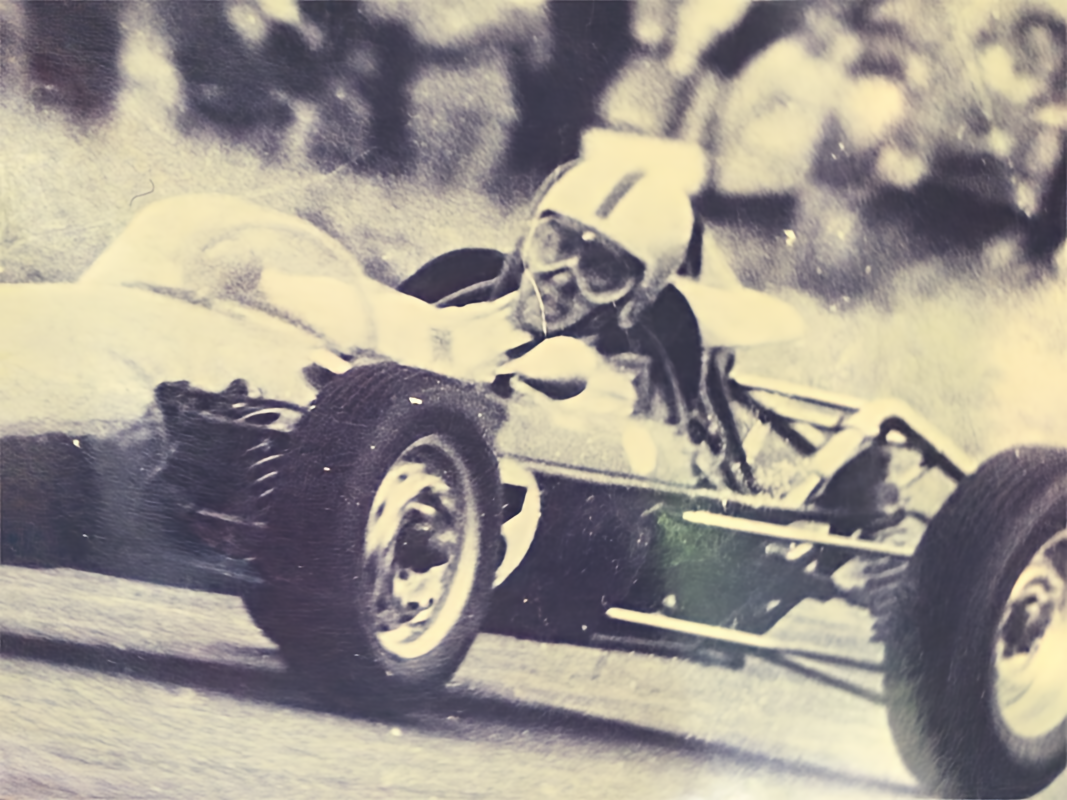
Barry Keen driving the first Begg car that George Begg built – the Begg 650, in 1964. Photo: Supplied
“I’d take a shortcut through the paddocks. If I was nice to the girl who lived down the road she’d double me on her bike,” he grins.
Farmers were trying to recover their losses post war. Barry’s brother, 18 years older, had been shipped home after being wounded fighting in World War II.
Barry travelled daily into Invercargill to Southland Technical College by H&H Bus, leaving school to work on the farm.
Saturday motor racing was a light relief and some fun for the whole community.
But much to his parents’ disgust, Barry was burning through his savings chasing his love of car racing and it was getting too expensive so in 1963 he gave up the sport he loved.
Two years later he was back after legendary Drummond engineer George Begg asked him if he’d race the car he was building.
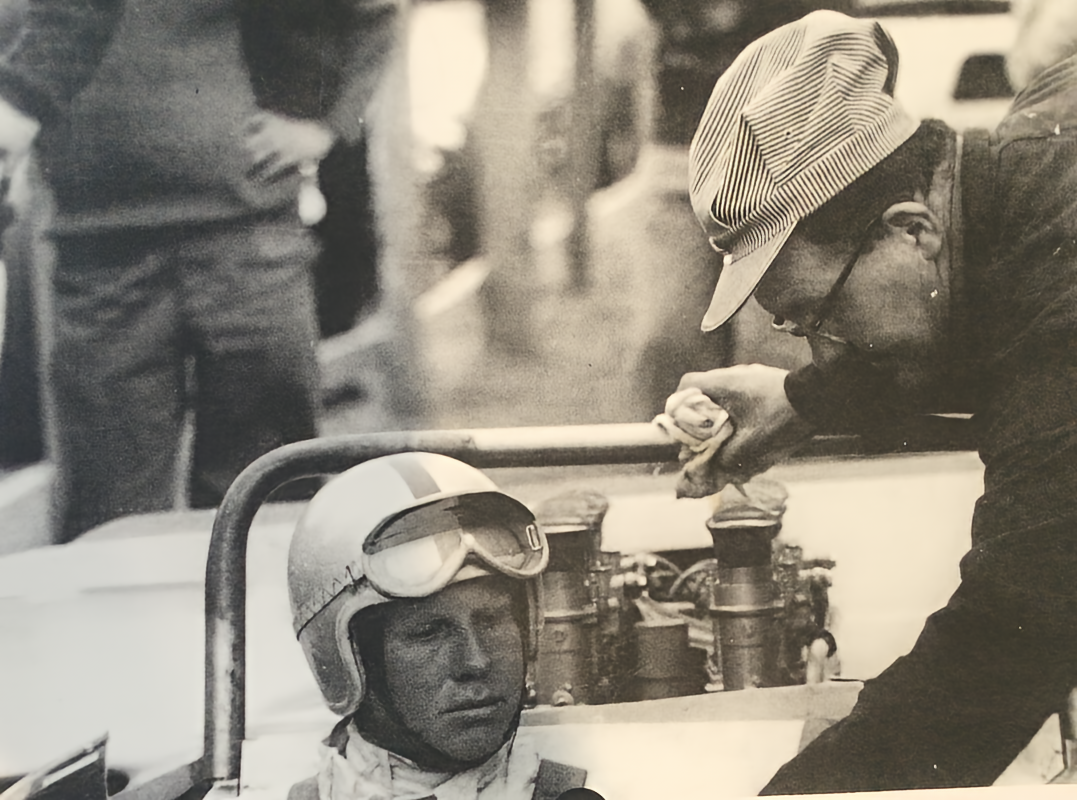
Barry Keen, left, ready to start a race with George Begg, right, giving instructions. Photo: Supplied
“I finished up racing seven cars he’d built through until 1967,” Barry says.
“George never raced himself, but it was always a challenge to him to build a racing car.”
The second car George built was for Winton doctor Dave Bruton.
Barry raced these cars all over the NZ Sports Car Circuit, including the Begg sports car – a Chevvy with a V8 motor.
They even raced in Levin and at the renowned Timaru Street Race.
“Brian Nicoll was our mechanic and Brian and I towed the car to the North Island while George and his family followed and holidayed in their caravan.”
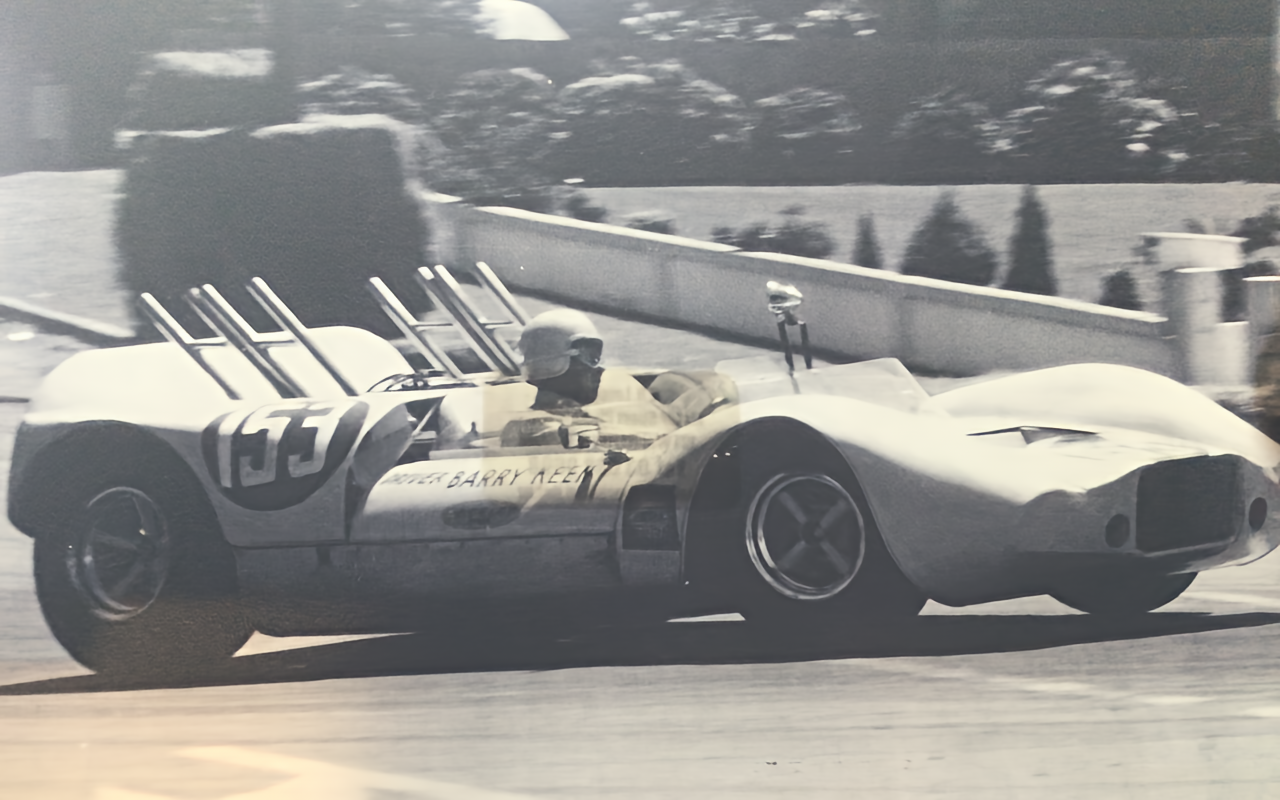
Barry Keen in the third car George built – a Chevvy sports car that they raced for the NZ Series – Photo - 1966-67. Photo: Supplied
Barry was just 24 and they mostly always got at least a third place, clocking in second once at Wigram.
The fastest speed he clocked was 160 miles/hr (257.4km/hr) but he never had a serious accident. “Once or twice, I’d spin off, but I never damaged a car.”
The last car he drove for George ended up setting a NZ Land Speed Record – 178 miles/hr (286.4km/hr), driven by Lawrence Brownlie – no seatbelts back then. Barry had been invited to drive that day but was unwell.
“That was a Crop Duster with an aeroplane engine, and he held that record for years.”
By his mid-20s Barry had “become responsible” marrying wife of 56 years Shirley, an Oreti teacher he’d met through friends.
With twins arriving making for three under three, Shirley’s pleased he’d given up motor racing.
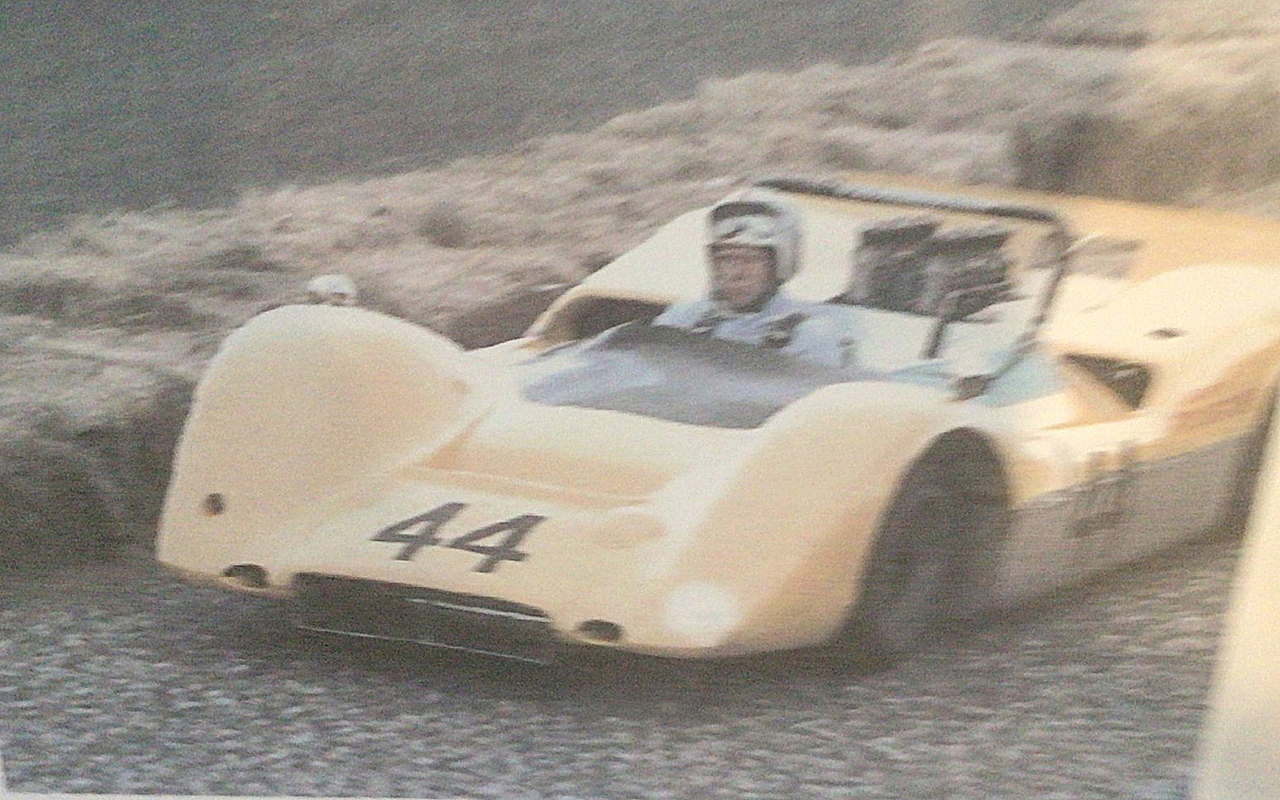
The McBegg - George Begg's seventh car and Barry Keen's last race. Photo: Supplied
“If I heard ‘B.B. Keen’s in the pits’ in our dating days I’d be waiting and wondering what had happened,” Shirley says.
“He could’ve raced overseas as George had been over there working at McLarens in England so there was that opportunity,” she says.
They farmed at Waicola until 1990 then moved to Heddon Bush before retiring to Invercargill in 2002.
Barry’s won a number of local championships but is equally champion for his services to the Southland Sports Car Club – a life member and patron, and until recently a flag marshal and First Responder for decades at Teretonga meets.
Teretonga went on to host eight or nine world championships, Barry at the helm on regular working bees to get the track started and keep successful meets happening.
He was honoured with a Historic Heritage Award at Te Papa in Wellington in 2019 for his long, distinguished career in motor racing, especially in Southland, long after he gave up motor racing due to those family commitments.
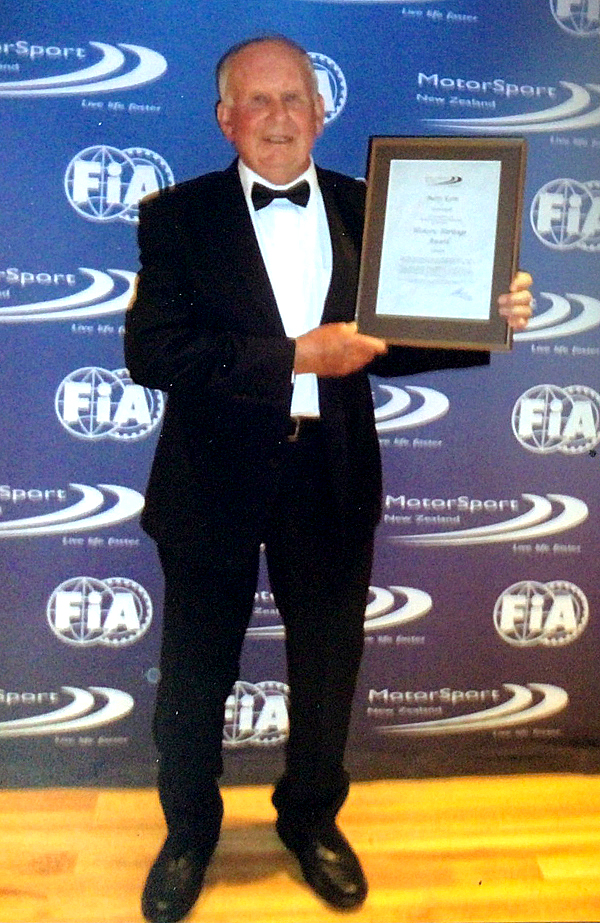
Barry Keen receiving his Historic Heritage Award at Te Papa in Wellington in 2019. Photo: Supplied
“It’s a very serious business now,” Barry says.
“It’s changed a great deal with big money and a win at all costs mentality."
"It’s not the same fun and camaraderie that we had. Money has ruined it to some degree.”
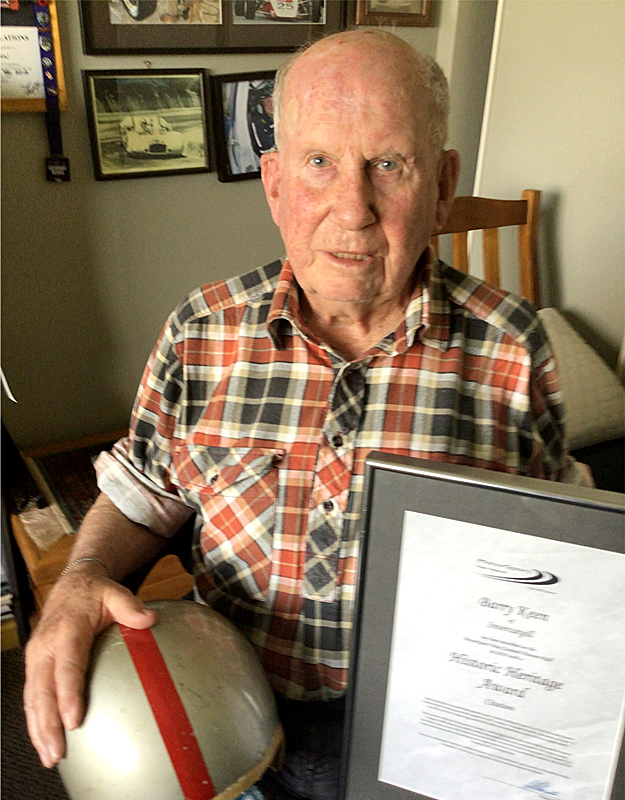
Barry Keen, now retired in Invercargill, with his racing helmet from the early days and the special award he received at Te Papa. Photo: Supplied
These days Barry’s still volunteering with Shirley at Southland Hospice where he’s been gardener for more than 20 years, gardens for elderly and is involved with the Southland Vintage Car Club.
You won’t find him boasting though.
“George Begg said in one of his books that if ever there was a prize for the ‘most humble man’ that had to go to Barry Keen,” Shirley says, proudly.
Sue Fea is a senior journalist with more than 40-years experience covering police, social and general news in the southern regions.